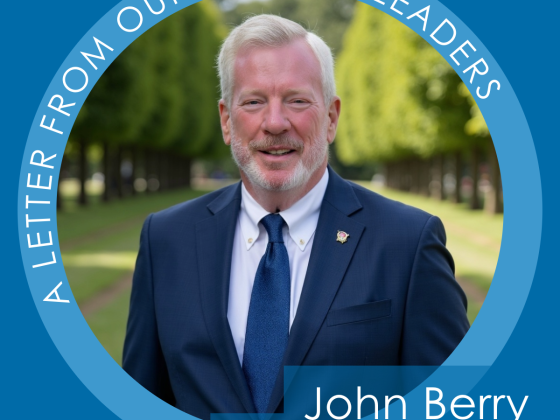On occasion we will be asked by the media, or by Catholic interest groups, to show the impact of the Society on the community and how we measure our success. I love to be asked about this, but I also hate it.
How do we measure our success as the Society? This is more difficult than you might first think.
For example, our mission states that we are a network of friends, growing in holiness and building a more just world. We do this through personal relationships with, and services to, people in need. No doubt, these are very good intentions! How, though, do we put a yardstick to “growing in holiness?” This is a lifetime journey, and the graduation certificate is earned when you are called Home. Our, ahem, graduates never write back with their alumni experiences!
We can measure services, but here we see a bit of Vincentian Paradox. We can grow, for example, the number of families that come to our food pantries. We can feel good that more people therefore receive some emergency help, and perhaps we can measure what percentage of those in need are helped. (That’s the impact study so much in vogue.) But hold on, our goal should not be to serve more people; in fact, a systemic change goal might be to serve fewer people! If we can help someone to take care of themselves and not need a food pantry, that’s a better result, right? We can instead aim to serve all who need us, but also work to reduce the number who need such emergency help. Don’t fret with how that makes our “numbers” appear – just do the right thing for that family.
When asked what the Society does to combat homelessness, there is an expectation that our answers reflect the numbers of houses we build and people we place into more permanent housing. Yet the larger service the Society provides is in homelessness prevention, by helping people to stay in their home with rent assistance. Even this is an incomplete number. When we help someone with a utility or food bill, this frees funds that can now be spent for their rent bill (and vice versa). Any wonder now why we drive the statisticians crazy?
Outsiders also find it perplexing when we tell them “We don’t count that number” for some of their usual statistics. This reflects our Rule in not being judgmental. Because most Vincentians also have a natural aversion to paperwork, preferring to serve rather than to count services, we count only the most need-to-know numbers. Often this is because a funder or food bank demands it.
We really appreciate that nearly all Councils and Conferences provide some common measurements such as those in our annual national reporting process. This counting tells the story of the Society to the rest of the nation, and most especially our Bishops, which in turn provides us with even more support. We try to keep the requested measures to a minimum, and they do tell a wonderful story of how the Society helps our neighbors in need across the United States. Thank you for completing these annual requests!
What can we reasonably do to measure our success? I propose that first, it is entirely legitimate in our case to measure intent. In an organization that serves people, one at a time, aggregations don’t always work but our individual intentions are charitable and even Holy. We can’t measure how many times someone in need sees the Face of Christ in our Home Visits. We pray that we provide that outcome in every encounter through our smile, our relationship, our prayers. Let’s therefore measure these encounters as outcomes, not just process, with intent in mind.
Further, we may not always measure outcomes, but we can measure excellence. We can work to provide more with less, ensuring that donated funds are spent wisely. Make no mistake, our goal is not to serve the poor efficiently! That thinking leads to impersonal interactions and one-size-fits-all services that often don’t work for the real, live people coming to us not just for material assistance but for prayerful empathy and God’s love. The decisions we make and services we provide through our Home Visits and Conference meetings may not be efficient, but we can assess and work to have truly helpful results for those we serve.
Let’s review annually what we measure and ask if it’s required by outside sources, meaningful to our goals, or just “nice to know,” and then revise to have confidence not only in how we measure but why we measure.
By the way, Vincentians also see the Face of Christ when we serve others. We hear this all the time from Vincentians, who often say that they get so much more out of their Society effort than they put into it. This aggregate result is something I would not dare try to measure. Let us be confident and satisfied that God sees this outcome in each one of us personally, and that He is well pleased.
Yours in Christ,
Dave Barringer
CEO



Well stated!!